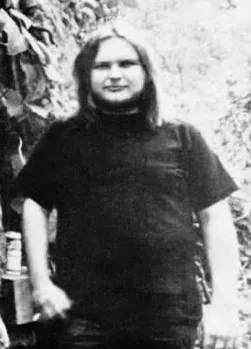In 2012, violent ethnic clashes erupted in Kenya's Tana River District over cattle grazing rights, leading to over 52 fatalities. This tragic incident highlights the ongoing challenges related to land use and intercommunal tensions in the region.
On August 22
7
Important Days
56
Important Events
313
Births and Deaths
recorded.
Holidays and Occasions
Events
Births and Deaths

Honoring the International Day for Victims of Religious Violence
The International Day Commemorating the Victims of Acts of Violence Based on Religion or Belief is observed annually on August 22. This significant day aims to raise awareness about the alarming increase in violence driven by religious intolerance around the globe...

National Heroes' Day in the Philippines: Date, Significance, and Celebrations
National Heroes' Day is a significant public holiday in the Philippines, dedicated to honoring the contributions of Filipino heroes who fought for the country's freedom and independence. This special day is celebrated on the fourth Monday of August, a custom established in 2007 through Republic Act No...

Flag Day in Russia: Celebrating National Pride and Heritage
Flag Day, celebrated on August 22nd, holds significant importance in Russia as a day dedicated to honoring the national flag of the Russian Federation. This day celebrates the colors of the flag, which symbolizes the nation's pride and cultural heritage...

Madras Day: Celebrating the Rich Legacy of Chennai
Madras Day, celebrated on August 22 every year, marks the birthday of one of India's most vibrant cities, Chennai. Established in 1639, Chennai has a rich history as a cultural and economic hub of Tamil Nadu...

Guinefort: The Holy Greyhound and His Feast Day Traditions
In medieval folklore, few tales are as captivating as that of Guinefort, the holy greyhound. Revered as a saint and protector of children, Guinefort's story is rich with themes of loyalty, sacrifice, and the intertwining of the sacred and the secular...

Understanding the Immaculate Heart of Mary in the Roman Catholic Tradition
The Immaculate Heart of Mary is a significant feast in the Roman Catholic calendar, celebrated on August 22 each year. This feast serves as a reminder of Mary's pure affection for her son, Jesus Christ, and her unwavering love for humanity...

Exploring the Queenship of Mary in Catholicism
The Queenship of Mary is a profound and meaningful doctrine in the Catholic Church that emphasizes the role of the Virgin Mary as the spiritual queen of heaven and earth. This teaching is celebrated by millions of Catholics around the world and holds a significant place in the liturgical calendar...
In 2007, the Texas Rangers achieved a historic milestone by defeating the Baltimore Orioles with an astounding score of 30–3, marking the highest number of runs scored by a team in modern Major League Baseball history. This unforgettable game remains a standout moment in MLB statistics.
In 2006, renowned mathematician Grigori Perelman received the prestigious Fields Medal for his groundbreaking proof of the Poincaré conjecture. However, he famously declined to accept the award, sparking discussions about his remarkable contributions to mathematics and the nature of recognition in the academic world.
On July 14, 2006, Pulkovo Aviation Enterprise Flight 612 tragically crashes in eastern Ukraine near the Russian border, resulting in the loss of all 170 passengers and crew on board. This incident remains one of the deadliest aviation disasters in the region's history.
In 2004, two iconic paintings by Edvard Munch, "The Scream" and "Madonna," were stolen at gunpoint from a museum in Oslo, Norway, marking one of the most infamous art heists in history. Discover the dramatic events surrounding this audacious theft and its impact on the art world.
In 2003, Alabama Chief Justice Roy Moore was suspended for defying a federal court order that mandated the removal of a Ten Commandments monument from the lobby of the Alabama Supreme Court building. This controversial decision sparked nationwide debates on religious symbolism in public spaces.
In 1999, China Airlines Flight 642 tragically crashed at Hong Kong International Airport, resulting in the loss of three lives and injuries to 208 others. This incident marks a significant event in aviation history, highlighting safety concerns in air travel.
In 1992, FBI sniper Lon Horiuchi fatally shot Vicki Weaver during a tense 11-day standoff at her Ruby Ridge, Idaho home, a pivotal event in American history that sparked national controversy and discussions on government intervention.
In 1991, Iceland became the first country globally to acknowledge the independence of the Baltic states, marking a significant milestone in international relations and support for sovereignty.
In 1989, baseball legend Nolan Ryan achieved a historic milestone by striking out Rickey Henderson, becoming the first pitcher in Major League Baseball history to reach 5,000 strikeouts. This iconic moment solidified Ryan's legacy as one of the greatest pitchers in the game.
In 1985, British Airtours Flight 28M experienced a tragic engine fire during takeoff at Manchester Airport. While the pilots successfully aborted the flight, inadequate evacuation procedures led to the loss of 55 lives, primarily due to smoke inhalation. This incident highlights the critical importance of efficient emergency protocols in aviation safety.
In 1981, Far Eastern Air Transport Flight 103 tragically disintegrated mid-air and crashed in Sanyi Township, Miaoli County, Taiwan, resulting in the loss of all 110 individuals on board. This devastating incident remains a significant event in aviation history.
In 1978, the U.S. Congress passed the District of Columbia Voting Rights Amendment, aimed at granting voting rights to residents of D.C. However, the amendment ultimately fell short of being ratified by the required number of states.
1978 – Nicaraguan Revolution Highlights: The Sandinista National Liberation Front (FSLN) takes control of the National Congress of Nicaragua, capturing more than a thousand hostages in a significant political upheaval.
In 1973, the Chilean Congress passed a resolution condemning President Salvador Allende's administration, calling for his resignation or the possibility of being forcibly removed and replaced by new elections. This pivotal political moment marked a significant turning point in Chilean history.
In 1972, Rhodesia was expelled from the International Olympic Committee (IOC) due to its discriminatory policies, marking a significant moment in sports history and the fight against racism in athletics.
In 1971, J. Edgar Hoover and John Mitchell revealed the arrest of 20 members of the Camden 28, a significant event in the history of anti-war protests. Discover the impact of this pivotal moment on social movements and law enforcement practices.
Pope Paul VI makes history in 1968 with his groundbreaking visit to Bogotá, Colombia, marking the first time a pope has traveled to Latin America. Discover the significance of this monumental event in religious history.
In 1966, the National Farm Workers Association (NFWA) and the Agricultural Workers Organizing Committee (AWOC) united to form the United Farm Workers Organizing Committee (UFWOC), laying the groundwork for the United Farm Workers (UFW) movement. This pivotal merger marked a significant moment in the history of labor movements for agricultural workers in the United States.
In 1965, a historic on-field altercation unfolded when San Francisco Giants pitcher Juan Marichal struck Los Angeles Dodgers catcher John Roseboro on the head with a bat. This shocking incident ignited a fierce 14-minute brawl, marking one of the most notorious and violent moments in sports history. Discover more about this significant event that left a lasting impact on baseball.
In 1963, X-15 Flight 91 achieved a groundbreaking milestone, soaring to an impressive altitude of 107.96 km (67.08 mi) or 354,200 feet, marking the highest point in the X-15 program's history.
In 1962, a significant historical event unfolded as the Organization of American States (OAS) allegedly attempted to assassinate French President Charles de Gaulle. This pivotal moment in history highlights the complexities of international relations and political intrigue during the Cold War era. Discover the details of this intriguing incident and its impact on global politics.
In 1953, the infamous penal colony on Devil's Island was permanently closed, marking a significant turning point in its history. Discover the implications of this closure and its impact on the legacy of one of the most notorious prisons in the world.
In 1949, the Queen Charlotte earthquake emerged as Canada's most powerful seismic event since the 1700 Cascadia earthquake, marking a significant geological moment in Canadian history.
1944 – World War II: The Kedros Massacre in Crete, perpetrated by German forces, highlights the tragic events of the Holocaust during this tumultuous period.
In 1942, Brazil officially declared war on Germany, Japan, and Italy, joining the Allies in World War II. This pivotal moment marked Brazil’s commitment to the fight against Axis powers and its role in the global conflict.
In 1941, amid the turmoil of World War II, German forces initiate the Siege of Leningrad, marking a pivotal moment in the Eastern Front. Discover the historical significance and impact of this dramatic military operation.
In 1934, Bill Woodfull made history as the only Test cricket captain to reclaim The Ashes title twice for Australia. Discover the significance of his remarkable achievement in the world of cricket history.
In 1922, Michael Collins, the Commander-in-Chief of the Irish Free State Army, was tragically assassinated in an ambush amidst the turmoil of the Irish Civil War. This pivotal event significantly impacted Ireland’s history and its struggle for independence.
In 1902, the devastating 7.7 magnitude Kashgar earthquake struck the Tien Shan mountains, resulting in the tragic loss of at least 6,000 lives. Discover the impact and historical significance of this natural disaster.
In 1902, Theodore Roosevelt made history as the first President of the United States to publicly appear in an automobile, marking a significant moment in American presidential history and the evolution of transportation.
Founded in 1902, The Cadillac Motor Company revolutionized the automotive industry with its commitment to luxury and innovation. Explore the rich history of Cadillac and its impact on American engineering.
In 1894, Mahatma Gandhi established the Natal Indian Congress (NIC) to combat discrimination faced by Indian traders in Natal. This pivotal organization played a crucial role in advocating for the rights of the Indian community, laying the foundation for future civil rights movements.
In 1875, the Treaty of Saint Petersburg was ratified between Japan and Russia, facilitating the exchange of Sakhalin Island for the Kuril Islands. This historic agreement reshaped territorial boundaries in East Asia and fostered diplomatic relations between the two nations. Explore the impact of this pivotal treaty on regional geopolitics and its lasting significance.
In 1864, twelve nations came together to endorse the First Geneva Convention, which established vital regulations for the protection of victims in armed conflicts. This landmark agreement marked a significant step forward in humanitarian law and the safeguarding of individuals affected by war.
In 1851, the prestigious America's Cup was first claimed by the yacht America, marking a historic moment in sailing competition. Discover the origins of this iconic event and its significance in maritime history.
In 1849, the Passaleão incident marked a significant turning point in Sino-Portuguese relations when João Maria Ferreira do Amaral, the governor of Portuguese Macau, was assassinated by local Chinese residents. This event escalated tensions, leading to a military confrontation known as the Battle of Passaleão just three days later. Explore this pivotal moment in history that shaped the dynamics between China and Portugal.
Discover the establishment of the Second Federal Republic of Mexico in 1846, a pivotal moment in Mexican history that shaped the nation’s political landscape. Learn more about the events and significance surrounding this important era.
In 1827, José de La Mar took office as the President of Peru, marking a significant moment in the nation’s political history. Discover the impact of his leadership on Peru's development during this transformative period.
In 1798, French forces arrived at Kilcummin, County Mayo, Ireland, to support the rebellion efforts, marking a significant historical event in Ireland's fight for independence. Discover more about this pivotal moment in Irish history and the impact of foreign intervention on the rebellion.
In 1791, the Haitian Revolution commenced in Saint-Domingue, marking a pivotal moment in the fight against slavery in Haiti. This historic uprising laid the groundwork for Haiti's independence and significantly influenced global discussions on freedom and human rights.
In 1780, HMS Resolution, the ship of renowned explorer James Cook, made its triumphant return to England after his tragic death in Hawaii during the voyage. Explore the legacy of Cook's discoveries and the historic significance of this journey.
In 1777, British forces withdrew from the Siege of Fort Stanwix upon receiving alarming rumors about impending Continental Army reinforcements. Discover the significance of this pivotal moment in the American Revolutionary War and its impact on subsequent battles.
In 1770, explorer James Cook made history by naming and landing on Possession Island, claiming the east coast of Australia for Britain as New South Wales. Discover the significance of this pivotal event in Australia's colonial history.
In 1717, Spanish troops successfully landed on the island of Sardinia, marking a significant moment in military history. Discover the events that shaped Sardinia during this pivotal year.
In 1711, Britain's Quebec Expedition suffered significant losses as eight ships and nearly 900 soldiers, sailors, and women were lost to treacherous rocks at Pointe-aux-Anglais. This tragic event marked a pivotal moment in maritime history, highlighting the challenges faced during military operations.
In 1654, Jacob Barsimson made history as the first recorded Jewish immigrant to America, arriving in New Amsterdam. His arrival marks a significant moment in American history and the establishment of the Jewish community in the United States.
In 1642, Charles I famously raised his standard in Nottingham, signaling the start of the English Civil War. This pivotal event set the stage for a transformative conflict in British history. Discover the significance of this moment and its lasting impact on the nation.
In 1639, the British East India Company established Madras, now known as Chennai, India, on a small tract of land acquired from local Nayak rulers. This historical foundation marked the beginning of one of India's major metropolitan cities.
1614 – The Fettmilch Uprising: Jews are forcibly expelled from Frankfurt in the Holy Roman Empire after the violent plundering of the Judengasse, marking a significant event in Jewish history.
In 1559, Spanish archbishop Bartolomé Carranza was famously arrested for heresy, marking a significant historical event in the religious conflicts of the period. Explore the implications of his arrest and its impact on the Spanish Inquisition and Catholic Church.
In 1485, the pivotal Battle of Bosworth Field takes place, leading to the death of King Richard III of England. This significant event marks the end of the Plantagenet dynasty and ushers in the Tudor era under the reign of Henry VII. Discover the historical impact of this battle on England's monarchy.
In 1153, during the Crusader-Fatimid wars, the fortress of Ascalon was surrendered to an army of crusaders, including Templars and Hospitallers, commanded by King Baldwin III of Jerusalem. This pivotal moment marked a significant milestone in the conflict between the Crusaders and Fatimid Egypt, ultimately shaping the future of the region.
"Explore the historic 1138 Battle of the Standard, a pivotal conflict between Scotland and England that shaped the course of medieval history. Discover the key events, strategies, and cultural implications of this significant battle."
In 851, the pivotal Battle of Jengland took place, where Erispoe triumphed over Charles the Bald close to the historic Breton town of Jengland. This significant conflict shaped the power dynamics in the region.
"Discover how Arbogast plays a pivotal role in the election of Eugenius as the Western Roman Emperor in 392 AD, shaping the future of the Roman Empire during this crucial historical moment."
Births

2005 – Stiliana Nikolova, Bulgarian rhythmic gymnast

2003 – Cooper Connolly, Australian cricketer

2001 – LaMelo Ball, American basketball player

1997 – Lautaro Martínez, Argentine footballer

1997 – Fanum, American streamer

1997 – Maxx Crosby, American football player

1996 – Jeon So-min, South Korean singer-songwriter

1996 – Jessica-Jane Applegate, British Paralympic swimmer

1995 – Dua Lipa, English singer-songwriter

1994 – Olli Määttä, Finnish ice hockey player

1994 – Israel Broussard, American actor

1993 – Dillon Danis, American mixed martial artist

1992 – Ema Burgić Bucko, Bosnian tennis player

1991 – Brayden Schenn, Canadian ice hockey player

1991 – Federico Macheda, Italian footballer

1990 – Adam Thielen, American football player

1990 – Robbie Rochow, Australian rugby league player

1990 – Drew Hutchison, American baseball player

1990 – Randall Cobb, American football player

1989 – Giacomo Bonaventura, Italian footballer
Deaths

2024 – Arthur J. Gregg, American military officer (b. 1928)

2021 – Rod Gilbert, Canadian ice hockey player (b. 1941)

2018 – Krishna Reddy, Indian printmaker, sculptor and teacher (b. 1925)

2018 – Ed King, American musician (b. 1949)

2017 – Michael J. C. Gordon, British Computer scientist (b. 1948)

2016 – Toots Thielemans, Belgian and American jazz musician (b. 1922)

2016 – S. R. Nathan, 6th President of Singapore (b. 1924)

2015 – Eric Thompson, English race car driver and book dealer (b. 1919)

2015 – Ieng Thirith, Cambodian academic and politician (b. 1932)

2015 – Arthur Morris, Australian cricketer and journalist (b. 1922)

2014 – John S. Waugh, American chemist and academic (b. 1929)

2014 – John Sperling, American businessman, founded the University of Phoenix (b. 1921)

2014 – Noella Leduc, American baseball player (b. 1933)

2014 – Pete Ladygo, American football player and coach (b. 1928)

2014 – Emmanuel Kriaras, Greek lexicographer and philologist (b. 1906)

2014 – U. R. Ananthamurthy, Indian author, poet, and playwright (b. 1932)

2013 – Andrea Servi, Italian footballer (b. 1984)

2013 – Paul Poberezny, American pilot and businessman, founded the Experimental Aircraft Association (b. 1921)

2012 – Jeffrey Stone, American actor and screenwriter (b. 1926)

2012 – Paul Shan Kuo-hsi, Chinese cardinal (b. 1923)
